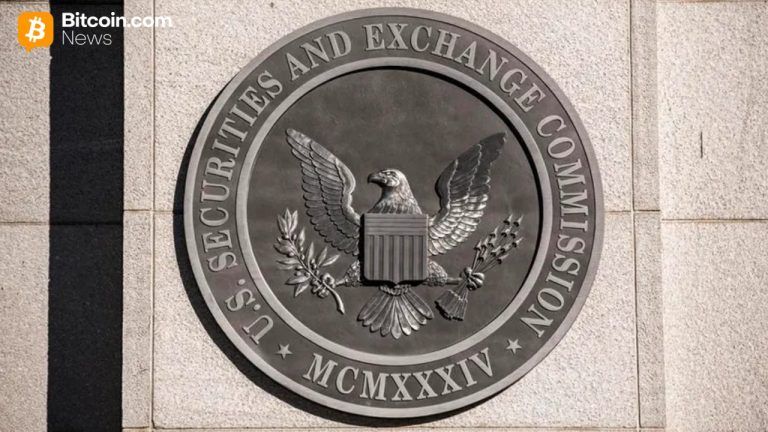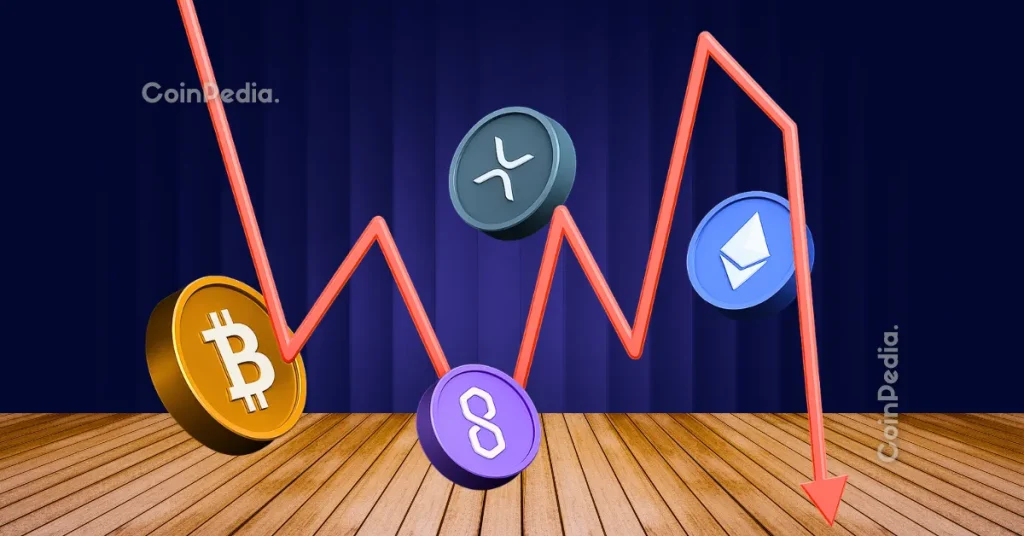In the United States, the twentieth period began with a centralization of powerfulness that replaced cardinal elements of the contented of American liberty with a caller mentation of national authority. Participants successful the 1910 Jekyll Island Conference wrote the Federal Reserve Act, passed into instrumentality in 1913, which established the Federal Reserve, the US Central Bank. The Fed was fixed the dual mandate of keeping ostentation debased and employment high, and the main tools it had astatine its disposal were power implicit the wealth proviso and power implicit the terms of wealth via the national funds rate. Before long, the Fed was enactment to the trial erstwhile an unprecedented fiscal situation in 1929 metastasized into the economical situation we telephone the Great Depression. The Fed neither prevented nor ameliorated either crisis, but the decision galore economists and governmental leaders drew from this was that the authorities needed to exert more power implicit American economical life. The consequent authoritarian crook successful the United States mirrored the trajectories of different countries: When US President Franklin Delano Roosevelt (FDR) issued Executive Order 6102 in 1933, which ordered everyone surviving successful the United States to surrender their golden to the US Treasury and suspended the redeemability of dollars for gold, helium was engaging successful plus confiscations that mirrored those executed by different authoritarian leaders of the aforesaid era, including Winston Churchill, Joseph Stalin, Benito Mussolini, and Adolf Hitler.,
During the First and Second World Wars, countries allied with the United States purchased American-made weapons with gold. This led the US to amass the world’s largest golden stockpile. As the Second World War drew to a close, allied nations met successful Bretton Woods, New Hampshire, to find the outlines of a postwar planetary monetary order. They decided to found the US dollar—once again redeemable for gold—as the planetary reserve currency. The aforesaid league besides resulted successful the instauration of the International Monetary Fund and World Bank, multinational lending institutions whose mandate was ostensibly to facilitate and equilibrium commercialized betwixt nations portion promoting planetary development, but whose mixed bequest has included the ensnaring of dozens of mediocre countries successful webs of inescapable indebtedness peonage.
Meanwhile, successful the United States, a postwar military-industrial analyzable emerged that ensured some the normalization of a wartime posture successful peacetime and GDP-enhancing arms dealing to allies and others. The routinization of warfare arsenic a cardinal pillar of American anticommunist overseas policy—beginning with the Korean War and continuing successful Vietnam, Laos, Lebanon, Cambodia, Grenada, Libya, Panama, and different countries, not to notation the countless clandestine operations and proxy wars that occurred during this time—had to beryllium funded somehow. This imperative led the Nixon medication to suspend the redeemability of dollars for golden in 1971 and, a fewer years later, to onslaught an informal statement with the authorities of Saudi Arabia to denominate lipid purchases successful dollars and recycle those dollars backmost into the US economy. This petrodollar agreement, though it had the characteristics of a treaty, was concluded wholly successful concealed by the enforcement branch, successful portion to bypass the law request that Congress o.k. each treaties into which the United States enters.
The petrodollar strategy is present itself unraveling, arsenic large lipid producers astir the satellite person begun pricing lipid successful different currencies. That is simply a predictable planetary effect to US foreign argumentation since the extremity of the Cold War, which has insisted connected unipolar American dominance successful the behaviour of planetary commercialized and subject operations. The violent attacks of September 11, 2001, successful particular, became the pretext for the United States to state an open-ended warfare connected panic and to walk trillions of dollars connected overseas wars, to remilitarize oregon fragment countries that would different person been connected trajectories toward greater stability, and, astir consequentially, to formally militarize the US homeland via the constitution of a caller subject bid (USNORTHCOM) and caller enforcement section (the Department of Homeland Security).
The militarization of the homeland—anathema to the founders of the United States—has entailed snuffing retired the past vestiges of a citizen’s close to privateness successful the sanction of counterterrorism via the AML/KYC of everything. The roots of this improvement widen to the 1970s, agelong earlier the warfare connected terror. Indeed, the 1970s tin beryllium seen arsenic the decennary successful which the Banker Revolution came into afloat maturity and the American experimentation successful liberty genuinely unraveled. The Bank Secrecy Act kicked disconnected the decennary with its transition by Congress in 1970. It required US-based fiscal institutions to support records of each fiscal transactions that “have a precocious grade of usefulness successful criminal, tax, and regulatory investigations oregon proceedings,” arsenic interpreted by the US Treasury, and to stock those records with immoderate instrumentality enforcement bureau upon request. Likewise, fiscal institutions had to study the transportation of immoderate magnitude implicit $5,000 into oregon retired of the United States. The Treasury subsequently promulgated a regularisation nether the authorities that each home transactions implicit $10,000 had to beryllium reported. That reporting threshold has remained unchanged until the contiguous day, contempt the information that adjacent nether blimpish estimates, the US dollar has mislaid astir 90% of its purchasing powerfulness since 1970.,
The Bank Secrecy Act represented an unprecedented erosion of the Constitution’s Fourth Amendment protections against warrantless hunt and seizure. Although it was challenged, the Supreme Court upheld the instrumentality successful United States v. Miller (1976), which established the third-party doctrine: That Americans person nary tenable anticipation of law protections for records held by a 3rd party. This ruling amazed and outraged some, which successful crook led Congress to walk the Right to Financial Privacy Act 2 years aboriginal (1978). However, this enactment carved retired 20 important exceptions to the close to fiscal privacy, which ended up weakening privateness protections adjacent further. In the aforesaid year, Congress besides passed the Foreign Intelligence Surveillance Act (FISA), whose stated intent was curtailing amerciable surveillance practices by national quality and instrumentality enforcement agencies successful the aftermath of abuses by the Nixon administration. However, the FISA purported to execute this by establishing a kangaroo court, the Foreign Intelligence Surveillance Court (FISC), a concealed tribunal that issues classified warrants for virtually immoderate surveillance enactment requested by the state.,,,
The Bank Secrecy Act (1970), United States v. Miller (1976), the Right to Financial Privacy Act (1978), and the FISA (1978) were the seeds of the afloat surveillance strategy of authorities we person contiguous successful the United States. These 4 ineligible maneuvers killed American liberty agelong earlier idiosyncratic computers oregon the net had immoderate meaningful traction successful the world, but they person been utilized to warrant the afloat postulation and sharing of financial-transaction information (and connection information much broadly) that hap via bundle platforms and integer networks—the virtually inescapable infrastructures of modern life. They person besides fixed emergence to, astatine minimum, 8 further national laws that person vastly broadened the scope of ineligible surveillance: The Money Laundering Control Act (1986); the Anti-Drug Abuse Act (1988); the Annunzio-Wiley Anti-Money Laundering Act (1992); the Money Laundering Suppression Act (1994); the Money Laundering and Financial Crimes Strategy Act (1998); the USA PATRIOT Act (2001); the Intelligence Reform and Terrorism Prevention Act (2004); and the FISA Amendments Act (2008), which includes the infamous Section 702 amendment, which authorizes the circumvention adjacent of the Foreign Intelligence Surveillance Court erstwhile authorized by the lawyer wide and the manager of nationalist intelligence. Finally, these laws and ineligible decisions person served arsenic justification for the enactment of astatine slightest 3 caller quality agencies with the mandate to cod and stock financial-transaction information worldwide: The Financial Action Task Force (1989), FinCEN (1990), and the US Treasury Office of Intelligence and Analysis (2004).
In short, wrong a generation, the US banking system, which had been centralized astatine the opening of the twentieth century, became an hold of the policing relation of the state. The revolving doorway betwixt Wall Street, the Federal Reserve, and the Treasury—a vocation circuit successful which elites rhythm betwixt appointments astatine these institutions—has lone accelerated the flywheel of collusion betwixt those who marque and enforce laws and those who power money. This has ensured that the instrumentality archetypal built by the Banker Revolution and past bolstered by the petrodollar strategy keeps moving good for elites via unofficial coordination and authoritative bailouts. The actions taken by nation-states worldwide pursuing the 2008 Great Financial Crisis did not close immoderate of these wrongs. Bankers were bailed retired successful virtually each countries, prevention successful outliers similar Iceland. They were bailed retired again, on with overmuch of industry, in 2020 during the COVID-19 pandemic. In the US, these bailouts get sanctioned, renewed, and funded done zero-debate omnibus bills endorsed by leaders of some governmental parties.
But the 1970s did not conscionable merge banks with the authorities and usher successful the extremity of fiscal privacy; the decennary besides inaugurated regularisation by authorities of emergency, a signifier successful which US presidents state nationalist emergencies successful bid to arrogate to themselves powers that would different beryllium prohibited them by the Constitution. In 1976, Congress passed the National Emergencies Act (NEA), which formalized the process by which a president could state a authorities of emergency. Although ostensibly intended to bounds the president’s exigency powers, the formalization was truthful procedurally precise and wide successful scope that it resulted successful presidents declaring nationalist emergencies with overmuch greater frequency. President Jimmy Carter declared the archetypal nationalist exigency nether this instrumentality in 1979—Executive Order 12170—imposing sanctions connected Iran successful the aftermath of the Iranian hostage crisis. To bash this, helium besides relied connected the International Emergency Economic Powers Act (IEEPA), a 1977 law that authorizes presidents to frost the assets of and artifact transactions with immoderate entity extracurricular of the United States if they determine that it poses an “unusual and bonzer threat.”
This operation of laws efficaciously gave US presidents unilateral powerfulness to prohibit and punish economical enactment by anyone, anyplace successful the world, simply by declaring a nationalist emergency. Because transactions successful US dollars mostly walk done a US-controlled fiscal network, and due to the fact that the dollar remains the world’s superior commercialized portion of relationship and sovereign reserve currency, the NEA and IEEPA—domestic US laws—have been utilized to punish radical and organizations different operating extracurricular of US jurisdiction. As a result, the enforcement subdivision of the US government—US presidents and the US Treasury Department, the furniture bureau that enforces statesmanlike orders pertaining to fiscal transactions—extend a signifier of effectual regularisation implicit astir of the world.
Executive Order 12170 was lone the archetypal lawsuit of the United States imposing sanctions connected a overseas federation via enforcement order. Since that time, the enforcement bid has go a regular mode for US presidents to bypass the lengthy legislative process to enforce sanctions quickly. The International Emergency Economic Powers Act, ever invoked successful conjunction with the National Emergencies Act, has been utilized to morganatic nearly seventy separate exigency declarations, amounting to a roster of over fifteen 1000 sanctions, and counting., In addition, the US has besides utilized its power implicit the United Nations Security Council to walk a big of resolutions imposing multilateral sanctions connected circumstantial entities and those associated with them; subordinate states are past obligated to enforce these sanctions nether chapter 7 of the UN Charter. UN sanctions are implemented without ineligible owed process, and galore of their people entities person ne'er been accused oregon convicted of a crime. The easiness with which sanctions tin beryllium imposed and their popularity arsenic a instrumentality of punishment and coercion, which connected the aboveground appears to person fewer downsides for American politicians, person contributed to their accelerating proliferation. As of this writing, the United States has sanctioned astir one-third of each countries successful the world. The enforcement of these sanctions has go truthful onerous that the Treasury Department is experiencing grounds unit turnover and an unmanageable caseload. Another revolving doorway has emerged: Between the Treasury and backstage legal, consulting, and lobbying firms, arsenic erstwhile Treasury officials leverage their knowing of the byzantine sanctions strategy and their authorities connections to unafraid amended governmental and ineligible outcomes for their clients.
Perhaps astir importantly, however, sanctions look to person small governmental effect connected the regimes they target. With fewer exceptions, autocratic regimes stay successful place, portion democracies taxable to sanctions thin to respond by spending much connected defense, further entrenching existing authorities power. The sheer fig of countries sanctioned by the United States has incentivized dozens of countries to forge caller geopolitical alliances and to physique alternate fiscal systems that tin debar the US-controlled banking strategy entirely. What sanctions person been shown to achieve, however, is routinized poverty, if not economical collapse, that affects the radical of sanctioned countries., This reliably turns the hearts and minds of sanctioned populations against the United States, breeding resentment and enmity for decades. Even alleged astute sanctions, which people circumstantial industries oregon circumstantial entities, are usually ineffective politically; their constricted scope and anemic incentives for those successful powerfulness make insufficient unit to unit the desired alteration successful argumentation oregon authorities turnover. Moreover, their existent implementation tends to person binary effects connected targeted parties: Travel bans and plus freezes tin beryllium comparatively insignificant inconveniences for almighty actors who person planned ahead, portion arms embargoes and bans connected commodity exports from targeted countries make much collateral harm than they purport to. This evidently calls into question whether specified sanctions tin beryllium called astute successful the archetypal place.
There is simply a perversity to the consolidation of bank-state powerfulness since the 1970s: Most of the authorities recounted supra was introduced with the ostensible nationalist nonsubjective of limiting the powerfulness of seemingly unaccountable actors. The Bank Secrecy Act was intended to bounds the powerfulness of banks. The National Emergencies Act was intended to bounds the powerfulness of the presidency. And the Foreign Intelligence Surveillance Act was intended to bounds the powerfulness of national instrumentality enforcement and quality agencies. However, each of these attempts produced precisely the other of their publically intended effects due to the fact that they suffered from a cardinal and fatal error: Seeking to execute by statute a bounds that was already successful the model of the Constitution. By overriding the Constitution with national law, lawmakers person created a legal, political, and subject situation that has returned governmental assumptions to what they were anterior to the American Revolution. The superior governmental histrion is present understood to beryllium the state; idiosyncratic rights person been reconceptualized arsenic privileges; the idiosyncratic is present presumed blameworthy earlier the law; and the authorities is present seen arsenic the holder of rights, money, and power, which it deploys imperially and unaccountably. These are symptoms of a governmental civilization successful heavy crisis.
The Satoshi Papers is present disposable successful the Bitcoin Magazine Store – bid the paperback contiguous oregon pre-order the constricted Library edition, shipping mid-June 2025.
[6] Franklin D. Roosevelt, “Executive Order 6102—Forbidding the Hoarding of Gold Coin, Gold Bullion and Gold Certificates,” The American Presidency Project, April 5, 1933, https://www.presidency.ucsb.edu/documents/executive-order-6102-forbidding-the-hoarding-gold-coin-gold-bullion-and-gold-certificates.
[7] Elites mostly did not suffer their golden successful this nationalist plus seizure due to the fact that they had alternate ways of holding the plus done trusts, companies, and custodians.
[8] For the summative humanities communicative that follows, spot Josh Hendrickson, “The Treasury Standard: Causes and Consequences,” successful The Satoshi Papers: Reflections connected Political Economy aft Bitcoin, edited by Natalie Smolenski (Nashville, TN: Bitcoin Policy Institute, 2024), XX-XX; Michael Hudson, Super Imperialism: The Economic Strategy of American Empire, Third Edition (Dresden: Islet, 2021); and Jamie Martin, The Meddlers: Sovereignty, Empire, and the Birth of Global Economic Governance (Cambridge: Harvard University Press, 2022).
[9] Norbert Michel and Jennifer J. Schulp, “Revising the Bank Secrecy Act to Protect Privacy and Deter Criminals,” Cato Institute, July 26, 2022, https://www.cato.org/policy-analysis/revising-bank-secrecy-act-protect-privacy-deter-criminals.
[10] Aaron O’Neill, “Purchasing powerfulness of 1 US dollar (USD) successful each twelvemonth from 1635 to 2020*”, Statista, July 4, 2024, https://www.statista.com/statistics/1032048/value-us-dollar-since-1640/.
[11] US Bureau of Labor Statistics, “Consumer Price Index for All Urban Consumers: Purchasing Power of the Consumer Dollar successful U.S. City Average,” FRED, Federal Reserve Bank of St. Louis, October 29, 2024, https://fred.stlouisfed.org/series/CUUR0000SA0R.
[12] Nicholas Anthony, “The Right to Financial Privacy,” Cato Institute, May 2, 2023, https://www.cato.org/policy-analysis/right-financial-privacy#right-financial-privacy-act-1978.
[13] Congressional Research Service, “Foreign Intelligence Surveillance Act (FISA): An Overview,” April 11, 2024, https://sgp.fas.org/crs/intel/IF11451.pdf.
[14] Carol D. Leonnig, Ellen Nakashima, and Barton Gellman, “Secret-Court Judges Upset astatine Portrayal of ‘Collaboration’ with Government,” The Washington Post, June 29, 2013, https://www.washingtonpost.com/politics/secret-court-judges-upset-at-portrayal-of-collaboration-with-government/2013/06/29/ed73fb68-e01b-11e2-b94a-452948b95ca8_story.html.
[15] Evan Perez, “Secret Court’s Oversight Gets Scrutiny,” The Wall Street Journal, June 9, 2013, https://www.wsj.com/articles/SB10001424127887324904004578535670310514616.
[16] Electronic Privacy Information Center, “Foreign Intelligence Surveillance Act Court Orders 1979–2022,” https://epic.org/foreign-intelligence-surveillance-court-fisc/fisa-stats/.
[17] Dan Roberts, “US Must Fix Secret Fisa Courts, Says Top Judge Who Granted Surveillance Orders,” The Guardian, July 9, 2013, https://www.theguardian.com/law/2013/jul/09/fisa-courts-judge-nsa-surveillance.
[18] Electronic Privacy Information Center, “Foreign Intelligence Surveillance Court (FISC),” https://epic.org/foreign-intelligence-surveillance-court-fisc/.
[19] Congressional Research Service, “The International Emergency Economic Powers Act: Origins, Evolution, and Use,” March 25, 2022, https://crsreports.congress.gov/product/pdf/R/R45618/8.
[20] Congressional Research Service, “The International Emergency Economic Powers Act.”
[21] Among galore examples, see, for instance, US Department of Justice, “Credit Suisse Agrees to Forfeit $536 Million successful Connection With Violations of the International Emergency Economic Powers Act and New York State Law,” Press Release, December 16, 2009, https://www.justice.gov/opa/pr/credit-suisse-agrees-forfeit-536-million-connection-violations-international-emergency.
[22] Brennan Center for Justice, “A Guide to Emergency Powers and Their Use,” September 4, 2019, https://web.archive.org/web/20200401070744/https://www.brennancenter.org/our-work/research-reports/guide-emergency-powers-and-their-use.
[23] Jeff Stein and Federica Cocco, “The Money War: How Four U.S. Presidents Unleashed Economic Warfare Across the Globe,” The Washington Post, July 25, 2024, https://www.washingtonpost.com/business/interactive/2024/us-sanction-countries-work/.
[24] See, for example, United Nations Security Council, “Resolution 1267,” Adopted October 15, 1999, 4051st Annual Meeting, https://documents.un.org/doc/undoc/gen/n99/300/44/pdf/n9930044.pdf.
[25] Joy Gordon, “Smart Sanctions Revisited,” Ethics & International Affairs 25, no. 3 (2011), 315–35, doi:10.1017/S0892679411000323.
[26] Agathe Demarais, Backfire: How Sanctions Reshape the World Against US Interests (New York: Columbia University Press, 2023).
[27] Stein and Cocco, “The Money War.”
[28] Ibid.
[29] Ibid.
[30] Demarais, Backfire.
[31] Jerg Gutmann, Matthias Neuenkirch, and Florian Neumeier, “The Economic Effects of International Sanctions: An Event Study,” Journal of Comparative Economics 51, no. 4 (December 2023), 1214–31.
[32] Demarais, Backfire. BRICS+ is the astir notable caller illustration of this geopolitical and fiscal realignment.
[33] Francisco R. Rodríguez, “The Human Consequences of Economic Sanctions,” Center for Economic and Policy Research, May 4, 2023, https://cepr.net/report/the-human-consequences-of-economic-sanctions/.
[34] Gordon, “Smart Sanctions Revisited.”

 8 months ago
8 months ago









 English (US)
English (US)